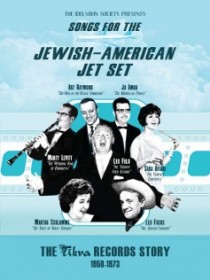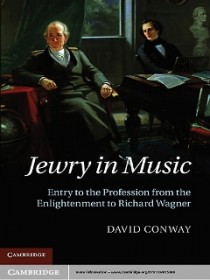The Russian-born violinist Joseph Achron (1886-1943) earned an early reputation as a child prodigy and later found world fame as a concert soloist. Less appreciated is that he was also “one of the greatest composers of the early 20th century.” One of Achron’s string quartet works received its modern premiere at Pro Musica Hebraica’s Spring 2009 concert (you can listen here), but many of them have never even been published. Now thanks to a grant by Pro Musica Hebraica, the Joseph Achron Society will soon publish Achron’s Complete String Quartets. These works include Chromatic String Quartet, Op. 26; Elegy in Memory of Joel Engel, Op. 62; Sinfonietta; and Four Improvisations. The 4-volume edition will also feature half a dozen transcriptions of Achron’s earlier works: the jovial Scher, Op. 42; a soulful Stimmung, Op. 32 No. 1; the Mi Chomocho from his Friday Evening Service; incidental music to the Yiddish play The Dawn, as well as newly commissioned scholarship on each individual work. To receive updates, sign up for Joseph Achron Society’s newsletter.
Subscribe via Email
- Subscribe to the Pro Musica Hebraica Blog by email. Enter your email address to be notified of new posts. You may unsubscribe any time.
The Right Representation of the Holocaust in Art
-
Recent Posts
- Saved: A trove of Jewish music that defied Nazis
- The ARC Ensemble performs the suppressed works of Ukrainian master composer
- The music of the historic Zimro Ensemble at Pittsburgh Jewish Music Festival
- Yiddish Classical Music in America
- Review: WEINBERG Symphonies – Nos 2 & 21,‘Kaddish’ (Gražinytė-Tyla)
 Tikva Records recently released a compilation of Jewish music from the 1950s and ’60s, feautring Leo Fuchs, Leo Fuld, Martha Schlamme, Mary Levitt, and many others.
Tikva Records recently released a compilation of Jewish music from the 1950s and ’60s, feautring Leo Fuchs, Leo Fuld, Martha Schlamme, Mary Levitt, and many others.  In a book published in January of this year, David Conway of University College London explores “why and how Jews, virtually absent from Western art music until the end of the eighteenth century, came to be represented in all branches of the profession within fifty years as leading figures–not only as composers and performers, but as publishers, impresarios and critics.” Writing in the Forward, Benjamin Ivry
In a book published in January of this year, David Conway of University College London explores “why and how Jews, virtually absent from Western art music until the end of the eighteenth century, came to be represented in all branches of the profession within fifty years as leading figures–not only as composers and performers, but as publishers, impresarios and critics.” Writing in the Forward, Benjamin Ivry